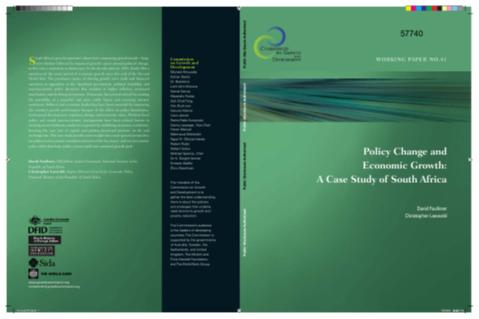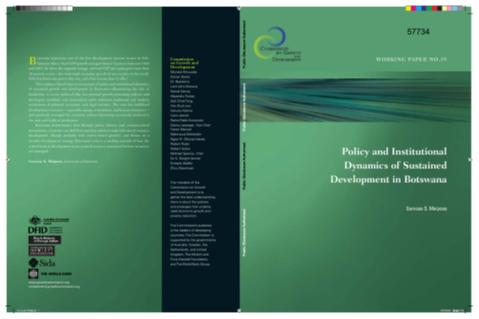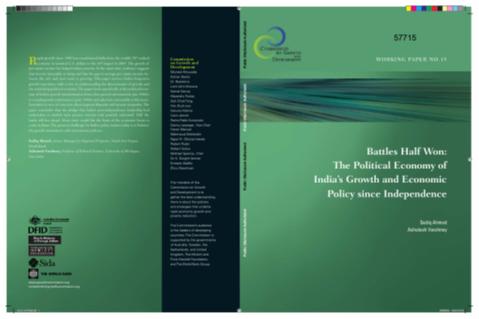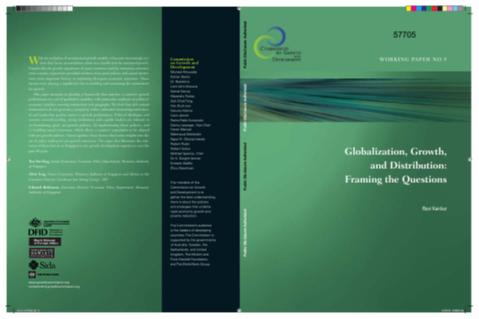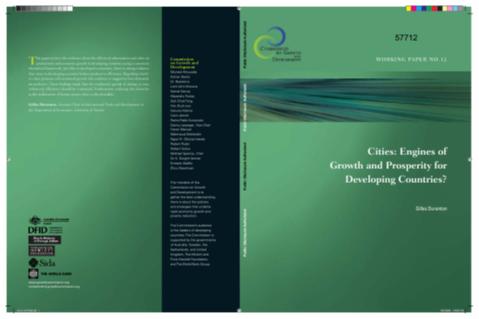The World Bank is a vital source of financial and technical assistance to developing countries around the world. We are not a bank in the ordinary sense but a unique partnership to reduce poverty and support development. The World Bank Group has two ambitious goals: End extreme poverty within a generation and boost shared prosperity.
- To end extreme poverty, the Bank's goal is to decrease the percentage of people living on less than $1.25 a day to no more than 3% by 2030.
- To promote shared prosperity, the goal is to promote income growth of the bottom 40% of the population in each country.
The World Bank Group comprises five institutions managed by their member countries.
The World Bank Group and Land: Working to protect the rights of existing land users and to help secure benefits for smallholder farmers
The World Bank (IBRD and IDA) interacts primarily with governments to increase agricultural productivity, strengthen land tenure policies and improve land governance. More than 90% of the World Bank’s agriculture portfolio focuses on the productivity and access to markets by small holder farmers. Ten percent of our projects focus on the governance of land tenure.
Similarly, investments by the International Finance Corporation (IFC), the World Bank Group’s private sector arm, including those in larger scale enterprises, overwhelmingly support smallholder farmers through improved access to finance, inputs and markets, and as direct suppliers. IFC invests in environmentally and socially sustainable private enterprises in all parts of the value chain (inputs such as irrigation and fertilizers, primary production, processing, transport and storage, traders, and risk management facilities including weather/crop insurance, warehouse financing, etc
For more information, visit the World Bank Group and land and food security (https://www.worldbank.org/en/topic/agriculture/brief/land-and-food-security1
Resources
Displaying 4756 - 4760 of 4907Policy Change and Economic Growth
South Africa's growth experience provides an example of how contrasting growth trends long-term decline followed by improved growth pivot around political change, in this case a transition to democracy. In the decade prior to 1994, South Africa experienced the worst period of economic growth since the end of the Second World War, with growth variable and declining.
Policy and Institutional Dynamics of Sustained Development in Botswana
Botswana represents one of the few development success stories in Sub-Saharan Africa. Real Gross Domestic Product (GDP) growth averaged almost 9 percent between 1960 and 2005, far above the Sub-Saharan Africa average. Real GDP per capita grew even faster, averaging more than 10 percent a year -- the most rapid economic growth of any country in the world. The crucial question is: Why has Botswana grown the way it has done, and what lessons does it offer?
Battles Half Won
Rapid growth since 1980 has transformed India from the world's 50th ranked economy in nominal U.S. dollars to the 10th largest in 2005. The growth of per capita income has helped reduce poverty. At the same time, evidence suggests that income inequality is rising and that the gap in average per capita income between the rich and poor states is growing. This paper reviews India's long term growth experience with a view to understanding the determinants of growth and the underlying political economy.
Globalization, Growth, and Distribution
In the last two decades, across a range of countries high growth rates have reduced poverty but have been accompanied by rising inequality. This paper is motivated by this stylized fact, and by the strong distributional concerns that persist among populations and policy makers alike, despite the poverty reduction observed in official statistics where growth has been sufficiently high. This seeming disconnects frames the questions posed in this paper. Why the disconnect, and what to do about it?
Cities
This paper reviews the evidence about the effects of urbanization and cities on productivity and economic growth in developing countries using a consistent theoretical framework. Just like in developed economies, there is strong evidence that cities in developing countries bolster productive efficiency. Regarding whether cities promote self-sustained growth, the evidence is suggestive but ultimately inconclusive. These findings imply that the traditional agenda of aiming to raise within-city efficiency should be continued.






